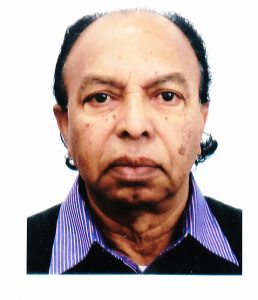
Zillur Rahman
Founder
Education is a powerful tool and Language is a crucial part of any culture and becomes a symbol of identity when different ethnic groups compete for power and resources. It is a dominant feature in determining the bases of nationalism or ethnicity, as it represents a nation’s identity and preserves its heritage. It is also the driving force behind the unity of the peoples and makes them distinct from other nations. Once a language is adopted into a society it is difficult to eliminate it until the society itself decides to change or adopt something different.
Language is also the best means of communication and it is a way to communicate ideas comprehensibly from one person to another either spoken or written in such a way that the other will be able to act exactly accordingly. In the modern era of globalization it is not enough to be able to speak one language to communicate with the outside world. Today we are also witnessing an aspect of globalization which is the increasing movement of people from one country to another for different purposes, such as education, desire for a better life, the need for employment. Whatever the reason living in another country affects one’s mother tongue. Every language spoken in the world represents a special culture and asset and to everyone the mother language is certainly one of the most precious treasures in our lives. It’s a duty and responsibility to preserve it and pass it down from generation to generation.
If you talk to a man in a language he understands, that goes to his head. If you talk to him in his language, that goes to his heart. (Nelson Mandela).
Motherland, mother tongue and the mother herself are essential to epitomize a person’s life. The importance of these in the overall development of an individual is immense. Without the proper identity of these in life a person is like a wingless bird. The mother tongue is like the wind under the wings. It is the medium through which self- expression takes place in its highest form. The child’s first language is critical to his or her personal, social and cultural identity. Maintaining this language helps the child value his or her culture and heritage, which contributes to a positive self-concept. This will also preserve family bonds and lessening of cultural conflicts between generations.
A child connects to his parents, family, relatives, culture, history, identity and religion through his mother tongue. Native language links the child with the culture of the society the child comes from and shapes his identity. Mother tongue is one of the most powerful tools used to preserve and convey culture and cultural ties. Children who are unaware of their culture, their language, and their history will lose confidence in themselves, the family, society and the nation to which they belong and will have no other option then seeking an alternate identity.
Mother language or native language is a language that a person never forgets, wherever that person may live. Children can lose their ability to use their mother tongues easily if the mother language is not used constantly at home or among peers of the same community. When they grow up, parents see the linguistic gap between them and their children has widened and leading to an emotional disconnection.
Keeping mother tongue in a foreign country does not happen spontaneously. Instead, it is an achievement that requires commitment and determination, especially from the family. Parents must establish a strong home language policy and make consistent efforts to help their children develop good literacy skills in their first language. When the mother language is not maintained, important links to family and other community members may be lost. By encouraging mother language use, parents can prepare the child to interact with the mother language community, both in Australia and overseas.
The objective of learning mother tongue in Bangla Language and Cultural School is to promote, foster and propagate the cultural heritage, within the framework of multiculturalism with a view to achieve the goal – ‘unity in diversity’ in a more cohesive, equitable and harmonious Australia.
Bangla Language School has a critical role to play in shaping Bangladeshi children’s future and it has certainly made a significant contribution in this regard to maintain cultural understanding and identity and foster diversity to a vibrant multicultural community in Canberra. All these were possible with the tireless activities and sacrifices of Bangladeshi community members, teachers, and volunteers. I would like to take this opportunity to give all credits to Parents, teachers and volunteers for the valuable support provided to Bangle Language & Cultural School for helping to this achievement.
In conclusion, I urge the parent that “The great and the most powerful gift a parent can give their child is to pass their mother language and their culture”.
.
